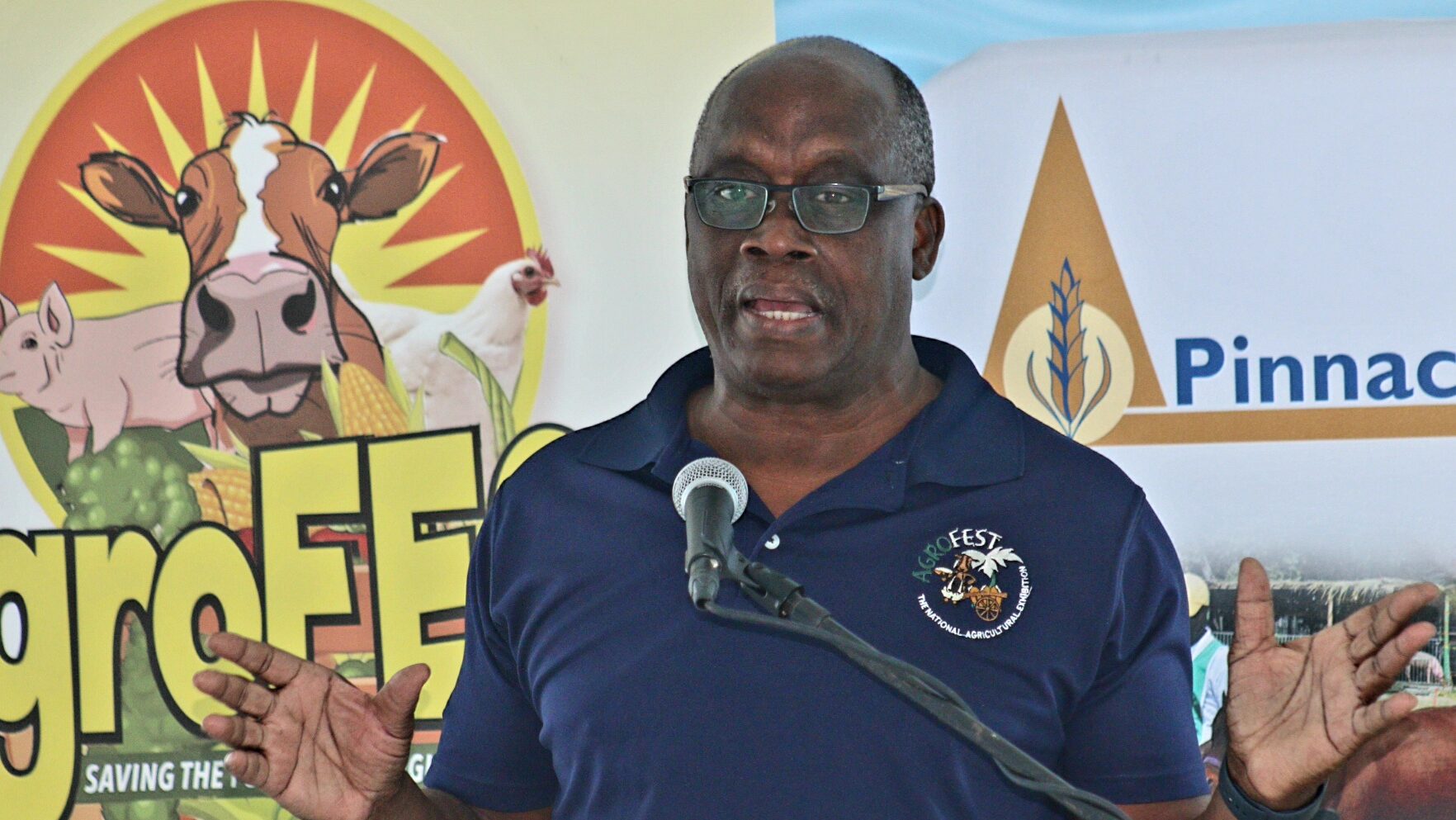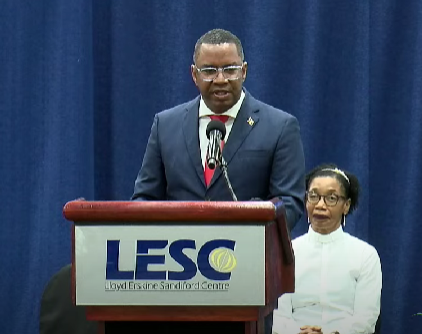Barbados Agricultural Society CEO Criticizes Government Land Acquisition, Warns of Food Security Risks

November 28, 2024
Barbados Agricultural Society CEO criticizes government for jeopardizing food security by acquiring prime farming land for housing development, warning of increased reliance on imports and diminishing farming resources.
In a furious rebuke of public policy, Chief Executive Officer of the Barbados Agricultural Society (BAS) James Paul on Wednesday accused authorities of jeopardising national food security by acquiring six acres of a government agricultural station’s prime farming land at Bullens, St James for housing development.
He blasted the move as a “land grab” and warned it could deepen Barbados’ reliance on imports while undermining efforts to protect scarce farming resources.
“This is a land grab, plain and simple,” the BAS CEO declared. “At a time when government says food security is important and we are already below the acreage considered adequate for a truly sustainable agricultural sector, this decision to take additional lands out of agriculture is beyond troubling.”
He noted that while nations worldwide are re-evaluating their farm policies to ensure domestic food security – amid rising global uncertainty in food supply chains caused by the war in Ukraine and escalating tensions in the Middle East and ongoing climate challenges – Barbados seems to be moving in the opposite direction.
“The world’s population is expanding, and there will be increasing demand on the remaining land to produce food,” he told Barbados TODAY. “Technology is not the panacea people think it is. In our case, the loss of agricultural land will only deepen our dependence on imports, leaving us vulnerable to supply chain disruptions.”
Paul expressed frustration at what he sees as a lack of long-term thinking in government policy. “If we are serious about food security, then agricultural land must be treated as sacred. Instead, the government’s actions suggest that it is not important enough to preserve what little we have left.”
The situation, according to the BAS boss, is dire, noting that decades ago, Barbados boasted a robust agricultural sector with approximately 45 000 acres of land under cultivation. Today, that figure has plummeted to less than half.
“It’s close to 20 000 acres now and dropping further,” Paul revealed. “Every time agricultural land is sold, there are all kinds of justifications to convert it for real estate. It’s driven by speculation, not necessity, and it’s just not right.”
He stressed that the government’s actions are eroding a critical resource: “Agricultural land is not just land—it’s a lifeline for food production, for environmental stability, and for future generations. We’re not treating it with the respect it deserves.”
The BAS CEO also questioned the necessity of acquiring more land for housing developments, pointing out that many existing housing projects remain unoccupied.
“In St Philip, in St John, there are houses that were built and have been left vacant. Even in some urban areas, you see empty homes,” he said.
Barbados is facing a declining population, Paul noted, which undermines the rationale for continuous housing expansion.
“Exactly who are we building these houses for?” he asked. “If the population isn’t growing fast, why are we taking up more land to provide for housing? This doesn’t add up.”
He suggested that financial incentives, rather than genuine housing needs, may be driving these decisions.
“The banks and financial institutions are making quick bucks off this, and it seems that’s what is dictating policy—not what’s best for the country,” Paul charged.
He called for immediate reforms to protect agricultural land from speculative practices. “We need a moratorium on the transfer or change of use of these lands,” Paul further urged.
In his view, Barbados should adopt stricter regulations similar to those in larger countries: “Even in capitalist economies like the United States and the UK, there are limits to how agricultural land can be repurposed. If you buy agricultural land, you can’t just convert it because you know someone in power. That is unacceptable.”
He proposed that when agricultural land becomes available, it should be prioritised for farming.
“Some families inherit agricultural land but have no interest in farming. There should be systems in place to transfer this land to people who want to farm, not to speculators looking to destroy a precious resource,” he argued.
Paul also criticised what he sees as inconsistency in Barbados’ environmental policies.
“We talk about protecting the environment and championing sustainability, but our actions as a nation tell a different story,” he said. “You can’t claim to care about the environment while undermining agriculture and food security.”
“We are good at making speeches, but speeches won’t protect us when food prices rise and our shelves are empty,” Paul added.
The CEO further expressed concerns that the government’s actions set a worrying precedent. “This recent land grab by the government sets a bad example for others in the economy,” he said. “If the government can do it, why wouldn’t private developers follow suit?”
He also cautioned that these actions could erode public trust.
“People watch what the government does. If they see agricultural land being treated as expendable, it sends the message that nothing is off-limits,” Paul contended.
For him, the solution lies in valuing agricultural land not just as a commodity but as a critical component of national resilience.
“We need to come to terms with what we’re doing,” he said. “This isn’t just about today—it’s about the survival of our country in an increasingly uncertain world. If we don’t act now, it may be too late.” (RG)


